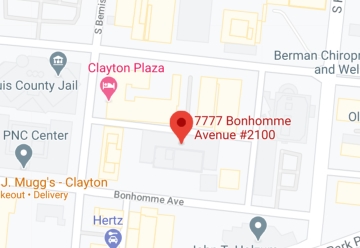St. Louis Traumatic Brain Injury Lawyer
The St. Louis tbi lawyers at Sumner Law Group, LLC, have more than 50 years of combined experience helping accident victims get fair compensation for their injuries. With help from our dedicated and experienced catastrophic injury attorneys, our clients have recovered millions of dollars in compensation to move forward with their lives after serious accidents.
Get your free initial consultation today by calling our St. Louis office or visiting our contact page. And when you choose our firm to handle your case, you won’t owe us any fees unless we recover compensation on your behalf.
What Is a Traumatic Brain Injury?
Broadly speaking, a traumatic brain injury is when an external force or object damages the brain and affects its ability to function properly. Traumatic brain injuries can be caused by an object breaking through the skull to penetrate brain tissue, or they can occur when the brain sustains a hard blow or jolt.
Traumatic brain injuries often cause severe neurological harm to accident victims, and they’re sadly common. The CDC reports that there were 224,000 hospitalizations related to traumatic brain injuries in one recent year alone. Additional CDC research suggests that there were 61,000 TBI-related deaths nationwide in one year.
Signs and Symptoms of TBI
According to the Mayo Clinic, here are some of the most common signs and symptoms of a traumatic brain injury:
Mild traumatic brain injuries
- Headaches
- Vomiting or nausea
- Drowsiness/fatigue
- Difficulty speaking
- Feeling dizzy/vertigo
- Blurry vision
- Ringing in your ears
- Changes to your sense of taste or smell
- Sensitivity to light or sound
- Feeling dazed, confused, or disoriented
- Difficulty concentrating
- Memory issues
- Insomnia or sleeping more than usual
- Anxiety and depression
- Mood swings
Moderate to severe traumatic brain injuries
- Losing consciousness for several minutes or longer
- Persistent, intense headache
- Convulsions or seizures
- Intense nausea or vomiting
- Dilated pupils in one or both eyes
- Clear fluids draining from the nose or ears
- Weakness or numbness in your fingers and toes
- Loss of coordination
- Deep confusion
- Feeling agitated, combative, or other sudden mood or personality changes
- Slurred speech
- Falling into a coma
Young children and infants may have difficulty communicating that they’re injured after a traumatic brain injury. Here are a few warning signs if you have a young child who recently sustained a hard blow to the head:
- A change in the child’s nursing or eating habits
- Persistent crying and an inability to be consoled
- The child is unusually or easily irritated
- Changes in sleep habits
- Seizures
- Drowsiness/inability to focus
- Loss of interest in favorite activities
- Depressed mood
Types of Brain Injuries
Despite being encased in bone, the brain is a vulnerable organ and can suffer many different types of injuries. Some of the most common types of TBIs include:
- Concussions – Concussions are bruises on the brain that form when the brain collides with the inside of the skull due to a sudden, sharp change in momentum.
- Hemorrhages and hematoma – These are both injuries resulting from internal bleeding as blood seeps into the brain’s tissues or collects in its empty spaces. Hematomas are generally caused by clots, leading to a burst blood vessel. Hemorrhages are more often the result of a hard blow to the head.
- Edema – Brain edema is the swelling of the brain, which can put pressure on the brain as it presses against your skull. This pressure on brain tissues can cause intense harm if it isn’t quickly relieved.
- Skull fractures – The skull may crack or splinter after a hard blow to the head. If the skull splinters, pieces of bone can penetrate the brain and cause injury. Even if the skull only cracks, though, it can put pressure on the brain and lead to further harm.
- Penetration injuries – When external objects break through the skull and penetrate the brain, they can destroy brain tissue as well as blood vessels. Penetration injuries to the brain are often fatal without immediate treatment.
- Shear injuries – Also known as diffuse axonal injuries, these occur when the brain is shaken or experiences a sharp, severe rotation. For example, this commonly occurs in certain kinds of car crashes as your head twists violently after impact.
- Coup-contrecoup injuries – A hard blow to the head can cause the brain to strike the opposite side of the skull, injuring the brain in that location as well as at the original impact point. These multiple impacts can damage brain tissues and break blood vessels within the brain.
Most Common Causes of TBI in Missouri
Some of the most common causes of traumatic brain injury from negligence include:





